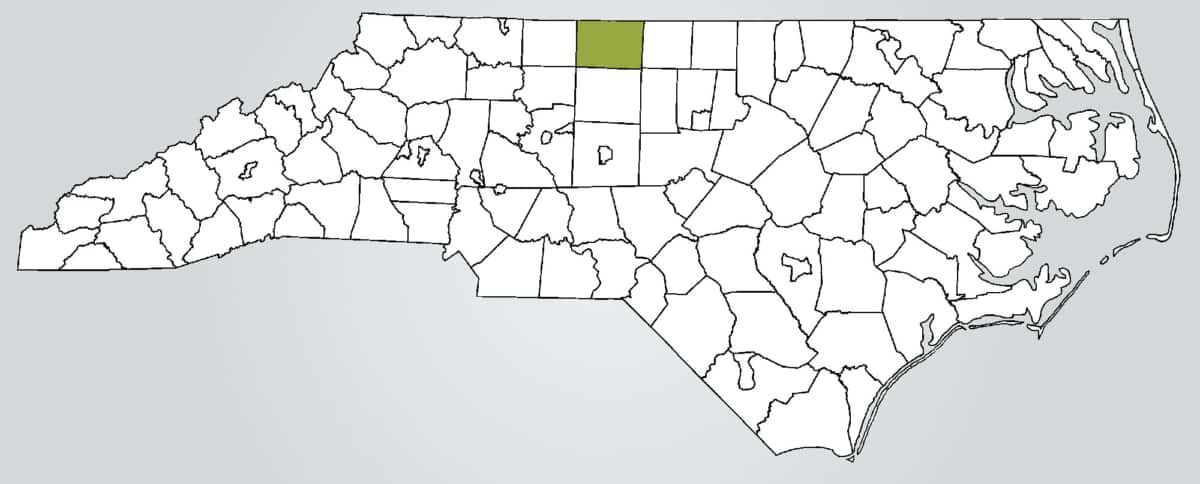
Earlier this month, the Rockingham County School Board decided to discontinue its grant funding for equity training and, according to Rockingham Now, return approximately $16,000 to the Reidsville Area Foundation (RAF). This is the second instance of the county discontinuing an equity training grant from RAF.
The first equity training grant, which specifically focused on racial equity and education, was awarded in 2016 and intended to run through the 2017-2018 school year. However, RAF’s Executive Director Jennifer Nixon said the initial grant was ended early, in Sept. 2017, after pushback from the community on why the district was doing equity training and some issues with the way it had been implemented.
“That’s normal for us for a project to course correct. I mean, in the world of funding, that’s what you expect and what you want your grantees to do,” she said. So the county returned with new direction for a second grant in equity training.
“They went back. They reworked their objectives,” Nixon said. “They still felt like they wanted and valued and needed some equity training for administrators and school leaders and district leaders, but it became more of a generalized educational equity project.”
The second and most recent funding termination, Nixon said, was not typical at all; however, the foundation had been aware it was a possibility. Many community members were speaking out against the equity trainings at school board meetings, while at the same time foundation representatives and other community members commented in favor.
“We were absolutely aware that this was being questioned, and we were aware that there were concerns,” Nixon said.
The school board ultimately decided to return the funding, with a 5 to 1 vote on May 6. Amanda Bell, who is the board’s only minority member, was the sole vote against the decision. Bell could not be reached for comment.
“The topics, I think they’re inappropriate for a school to be giving, even if it’s just to its administrators,” said board member Kimberly McMichael of the county’s decision. However, McMichael explained that the first of the RAF-funded equity trainings that she attended, she did find helpful.
“I felt like it was very good training. I felt like it was something that everybody should sit through,” she said.
McMichael said it was a second training that contributed to the board’s decision to discontinue the funding because of materials that promoted the discussion of gender and sexuality at earlier ages.
“Many different factors play into a student having a disadvantage,” she said. “It could be socioeconomic. It could be a language barrier. It could be that a student is experiencing the fall apart of a family, and that is a barrier for them that year. It could be that they are struggling with their identity. But I don’t believe it’s our school system’s place. Personally, I think it’s a parent’s place to guide our children through those hard times.”
Fellow board member Paula Rakestraw, writing in an email, agreed that the board’s decision was “also as a result of the material encouraging staff to discuss gender options and sexual preferences openly with students” but that it wasn’t the only reason.
“I can only speak for myself when I say that it was due to material that was being distributed that sent messages for our staff to enable our students to use their circumstances as excuses,” she wrote. “It did not empower our students to take responsibility for their actions and to be held accountable academically or behaviorally to the same set of standards.”
Rakestraw also wrote that she felt the school system is accountable for educating students and preparing them for college or career and needs to look at individual learning barriers and think creatively on how to help students be successful.
“Rockingham County’s a Tier 1 county, so there’s a lot of students, regardless of race and regardless of gender, that are at a disadvantage,” McMichael said.
Still, both board members said that they believed equity was an issue that needed to be addressed. McMichael also said that their decision was not against the foundation’s work.
“The Reidsville Area Foundation does a lot of good work, and in no way whatsoever in stopping the equity training did we think about it as being an insult to Reidsville Area Foundation,” she said.
When asked what the ideal equity training would look like, McMichael wrote that it was partly “meeting people where they are in life” along with action-taking that “builds integrity, community, school spirit, and [where] the students know they are important.”
“We have incredible teachers in Rockingham County Schools. Without a doubt, I believe they already address the whole child regardless of race or gender,” she added.
She also said the decision to discontinue the grant didn’t mean teachers weren’t receiving equity training at all, and that administrators and teachers are using MTSS to meet the whole child’s needs (referring to the Multi-Tiered System of Supports model), which she feels is the appropriate place for equity.
Although Nixon said the foundation was disappointed the funding was not allowed to go forward, she said RAF remained dedicated to equity work.
“Even when controlling for poverty, we see disparities in educational experiences and educational outcomes,” Nixon said. “I think that racial equity is in a sense baked into educational equity just like it’s baked into health equity.”
In explaining their equity work on their website, the foundation writes:
“Equity work is difficult. It is challenging and can be uncomfortable. Although we recognize that we come from different backgrounds and bring different life experiences with us, it is difficult to hear and process how those experiences have shaped outcomes for our children, friends, colleagues, and neighbors. It can be extremely uncomfortable for some of us to challenge our own beliefs and those of the individuals and communities that have shaped us.”
And although a second equity training grant has come to an end with the county, Nixon said the door remains open.
“It’s never the end for us. We’re here to serve our community,” she said. “We have a lot of faith in our administrators, principals, and teachers. We know that they care about this issue and they care about this work, and so we are here to support that as and when they are able to do it.”



